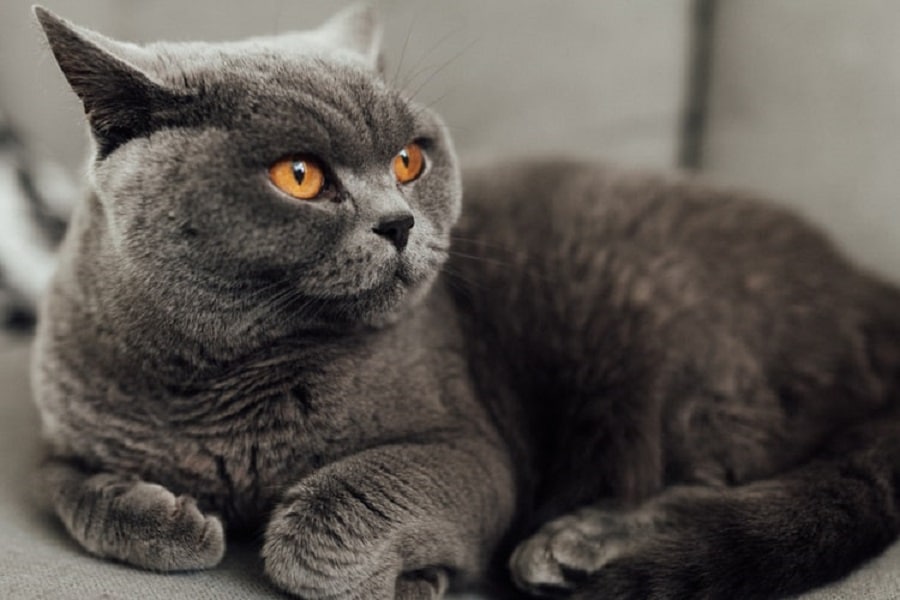
The British Shorthair is a playful, friendly cat that is extremely devoted and makes a good companion. The Romans are claimed to have imported British shorthair cats to Britain, making them one of the oldest recognized cat breeds. British shorthairs are praised for their soft, fluffy coats and rounded bodies, and could nearly be mistaken for live teddy bears.
British shorthairs make excellent family cats and enjoy spending time with their owners, however, they may frown upon being handled or cuddled excessively.
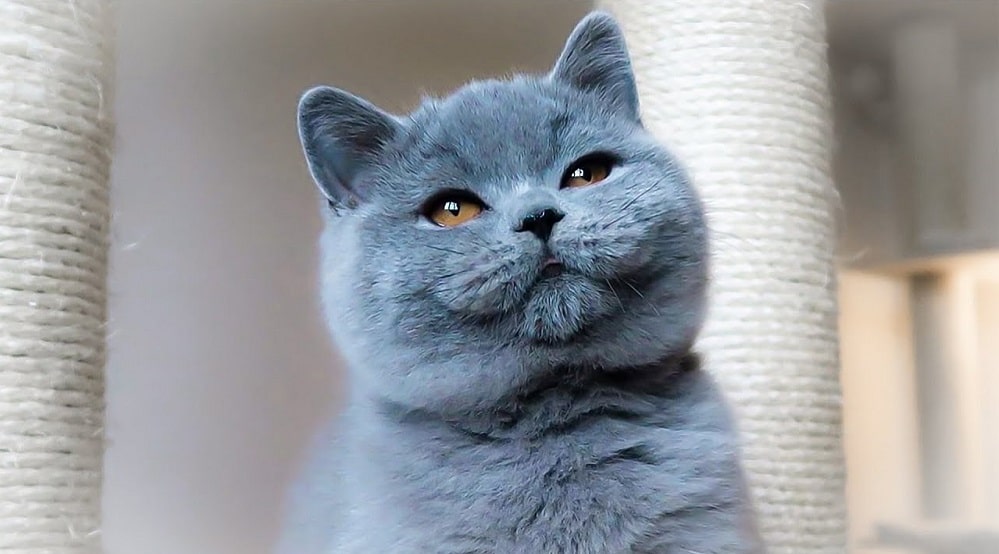
Apart from their calm demeanor, British shorthairs are prized for their thick, dense coats, which come in nearly any shade or pattern. Blue-gray cats, sometimes known as British blues, are the most preferred color among British shorthair cat owners.
Aside from their common blue coat, this breed is easily identifiable due to their thick legs, broad chests, rounder heads, and pinchable plump cheeks. To keep their coat free of loose hair and grime, these attractive cats simply need a short brushing once a week. British shorthairs are a large cat breed, with males weighing up to 17 pounds on average.
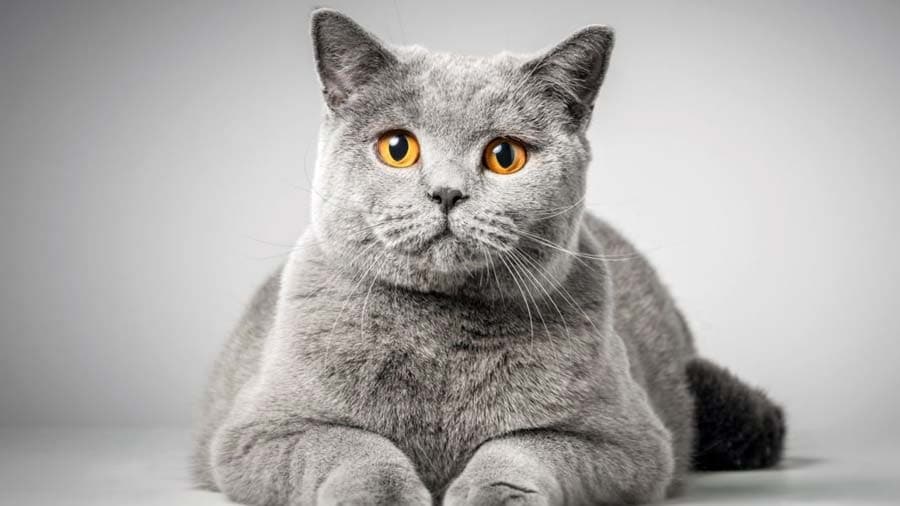
The coat is available in a variety of colors and patterns, including lilac, chocolate, black, white, pointed, tabby, and many others. Blue (grey) is the most common shade, and the cats are frequently referred to as British Blues.
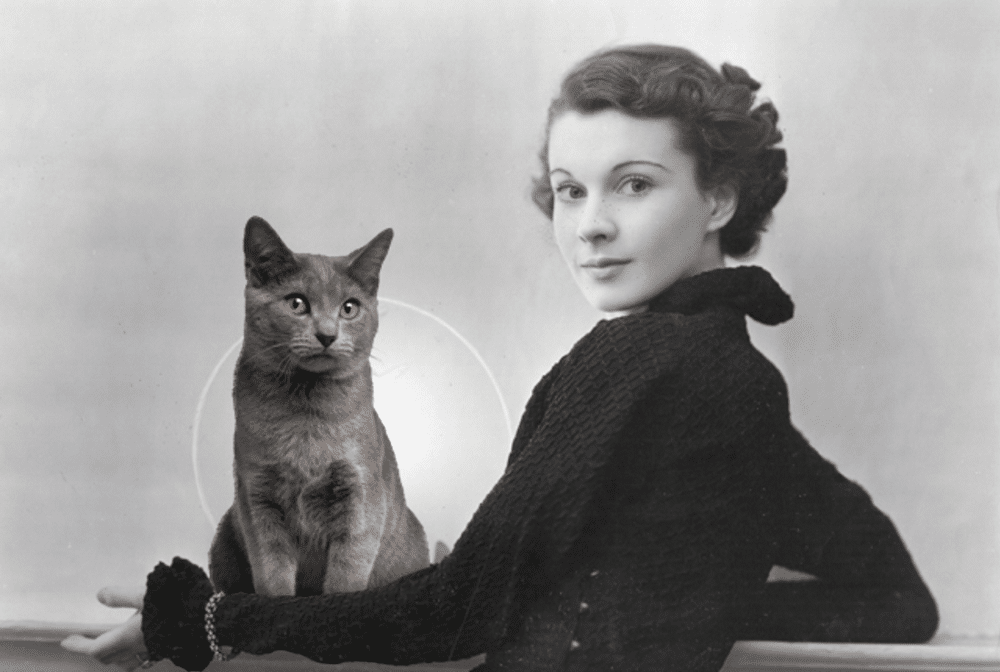
When the Romans invaded Britain, they brought cats with them to keep rats away from their food supply. The Romans finally fled, but the cats stayed behind, conquering a kingdom solely based on their beauty. British Shorthairs, like so many other breeds, were nearly extinct during World War II due to food shortages that left breeders unable to feed their cats. The breed was reintroduced after the war by crosses with domestic shorthairs, Russian Blues, Persians, and other cats.
The British Shorthair was recognized by the American Cat Association in 1967, but not by the Cat Fanciers Association until 1980. The breed is now recognized by all cat groups. It was once known as the British Blue, but because it now comes in several colors, it is now known as the British or the British Shorthair.
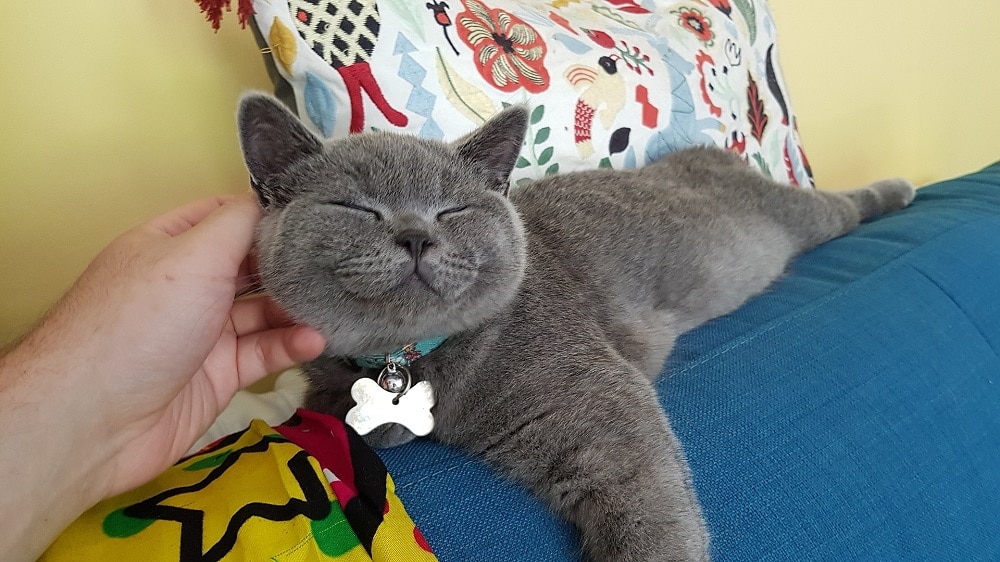
British Shorthair cats are known as the “gentle giants” of the cat world. With people and other animals, they are affectionate and loving. British Shorthair cats are calmer and less demanding of human attention than their Oriental counterparts. They also lack the curious nature that leads many Oriental cat breeds into trouble!
They certainly have their crazy moments now and then, but they rarely last more than five minutes! Though they can be shy around strangers at first, they connect up quickly and are extremely loyal to their owners.
While they are curious cats who are interested in everything you do, they usually enjoy nothing better than curling up on their owner’s lap.
British Shorthairs are known to get along with other cats and even the family dog on occasion. They can deal with practically anything as long as they are given plenty of time to rest. The Shorthair has a calm voice and is an undemanding companion.
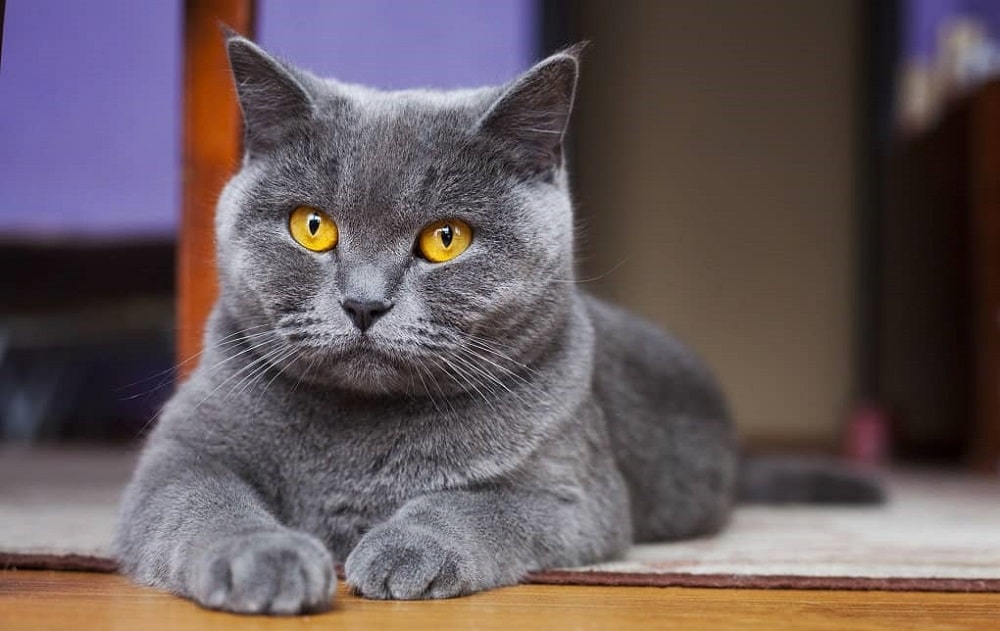
British shorthair cats are calm and, if educated as kittens, will treat everyone in the family (including dogs and other cats) as a good friend. This cheerful breed enjoys both a good play and a night curled up in front of the television. British shorthairs are ambiverts who enjoy being noticed but also respect their privacy, and may frown at being held or hugged excessively.
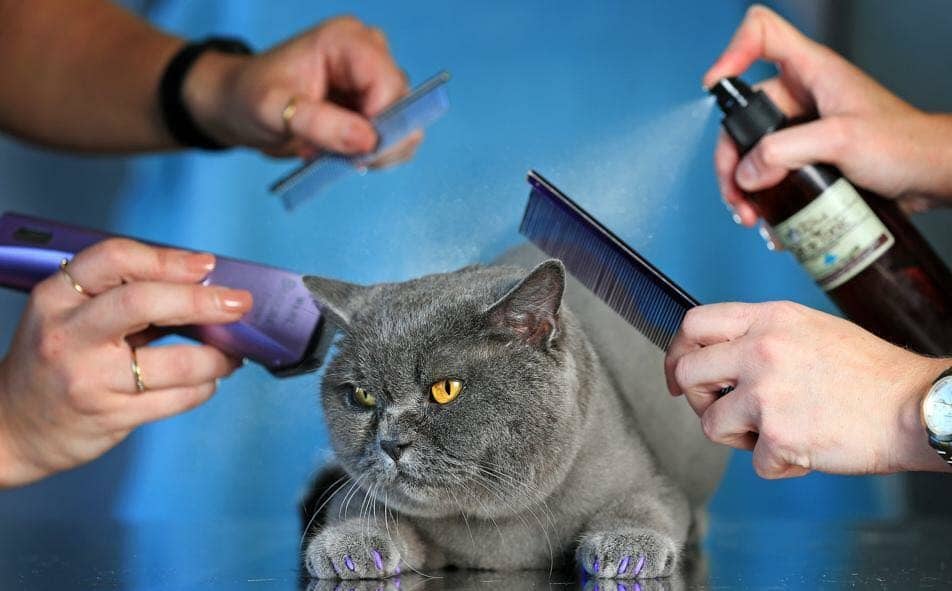
Because the British Shorthair is a large, muscular cat, her diet must be carefully monitored. Despite her massive boning and strength, you’ll want to keep an eye on her weight and make sure she doesn’t go out of shape. She needs to get enough exercise. To keep the breed in good shape, interactive play may be required. If a cat toy is not available, the British will find one or make one out of whatever she finds.
Brushing your cat daily is essential, especially during seasonal changes when the coat thickens or thins. If she isn’t brushed regularly, even this Shorthair cat can develop knots in her coat. The British are used to being alone. She is affectionate, but she also likes to nap in the sun. The British cat is a low-maintenance cat that makes a nice, calm companion.
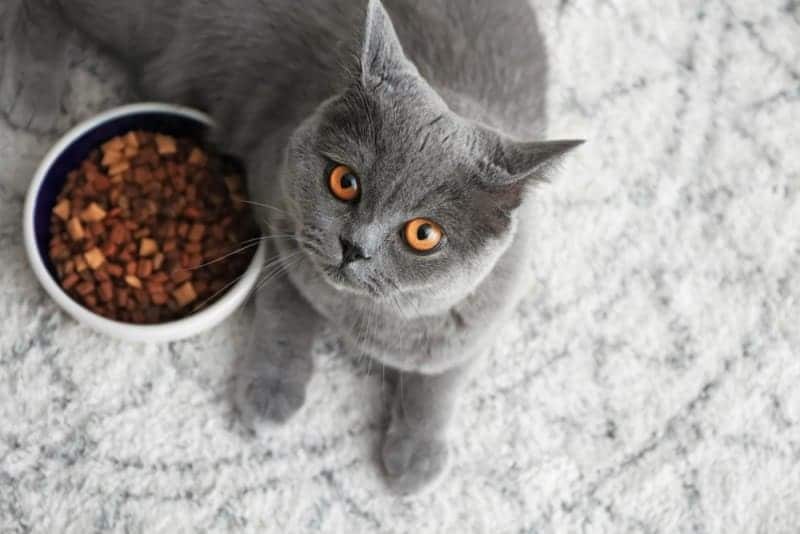
Both pedigreed and mixed-breed cats have different levels of health issues that could be inherited. Gingivitis and hypertrophic cardiomyopathy, both of which can affect any breed, have been seen in the Shorthair.
Regardless of how healthy your cat is when you first bring them home, you should be prepared for any problems that may arise. As these cats enter middle life, obesity may become an issue. Their love of naps doesn’t help them burn off calories, but this can be countered by feeding well-balanced cat food in lower daily servings. A British Shorthair cat has an average lifespan of 12 to 17 years.
They tend to gain weight. British Shorthairs, despite their size, show a tendency for obesity.
A British Shorthair cat once set the world record for the loudest purr. The purr of a cat named Smokey was measured at 67.7 dB in 2011, which is louder than a lawnmower.
Many people think that some well-known fictional cats are based on British Shorthairs. Puss in Boots and the Cheshire Cat are two of the most popular cats.
British Shorthair cats are one of the world’s oldest cat breeds.
Many individuals have said that these cats don’t seem fluffy, but rather plush, due to their distinctive textured coats.
A: Because British Shorthair cats are more common in the UK, they tend to be more expensive in the US. A British Shorthair kitten costs between $1500 and $2000 on average.
A: British Shorthair cats are not hypoallergenic. Unfortunately, this cat would not be a good choice for allergy sufferers.
A: British Shorthairs are medium to large-sized cats that can weigh more than the average cat. Males weigh 12-18 pounds, while females weigh 9-15 pounds.
A: Shorthairs can live between 12 to 17 years on average. Many factors influence this figure, including the cat’s nutrition and activity routine, living conditions, and overall health.
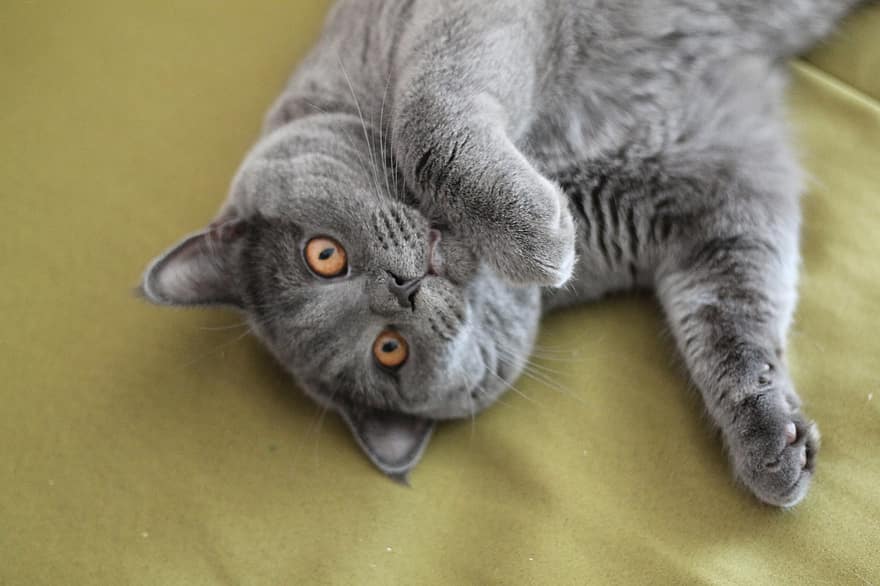
British Shorthair cats are placid, calm, and loving felines who will make wonderful pets for a home with children and dogs who are cat-friendly. If you’re seeking a cat that is affectionate but not overly dependent, the British Shorthair might be the cat for you.